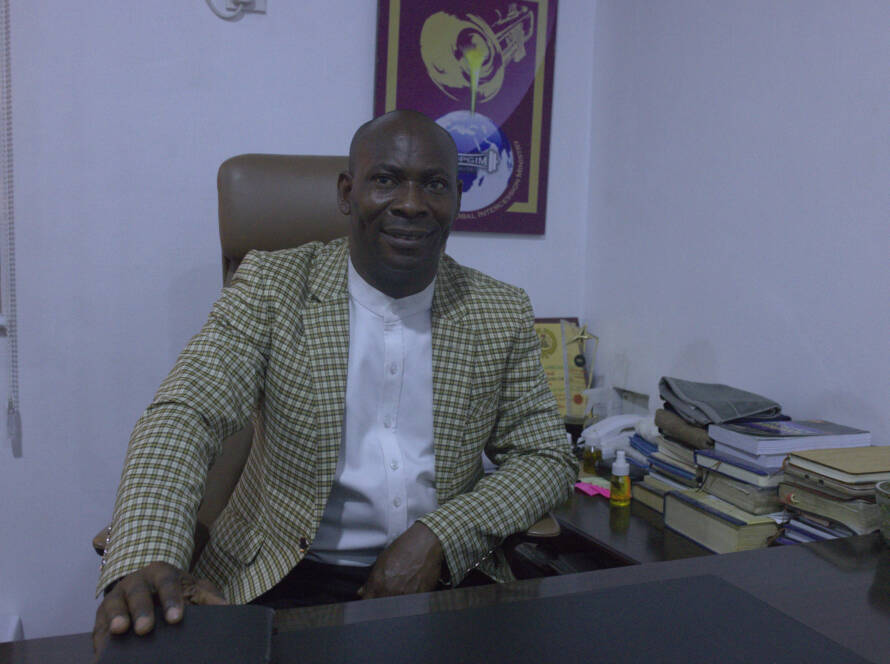Introduction
In a world full of noise, distractions, and constant activity, it’s easy to overlook the quiet, unnoticed moments where God is at work. One such powerful, yet often undervalued, practice is silent intercession—praying in the stillness, away from the eyes of others, when there is no public display of emotion or demonstration. The idea of silent intercession reminds us that God is not only moved by the loud, fervent prayers we utter aloud but by the quiet, heartfelt prayers whispered in solitude.
In this article, we’ll explore the hidden power of silent intercession, why it’s significant, and how God moves in the unseen moments of prayer, especially in these end times when the world seems more chaotic and uncertain than ever.
1. The Beauty of Silent Intercession: When Words Fail
Many of us have experienced moments when we want to pray but find it hard to find the right words. In those moments, when our hearts are heavy and our minds are overwhelmed, the silent act of intercession can be just as powerful as any spoken prayer. Romans 8:26-27 tells us that “the Spirit helps us in our weakness. We do not know what we ought to pray for, but the Spirit himself intercedes for us through wordless groans.”
There’s a deep mystery in these silent prayers, a trust that the Holy Spirit understands our hearts even when we cannot articulate our burdens. Silent intercession becomes a place where we release control and allow the Spirit to intercede for us, aligning our hearts with God’s will, even when our words fall short.
2. Biblical Examples of Silent Intercession
Throughout Scripture, we find examples of silent intercession that carry great power, even when they are not publicly acknowledged. One of the most profound examples comes from Hannah in 1 Samuel 1:9-18. In her deep anguish, she prays silently at the temple, moving her lips but not speaking aloud. Eli, the priest, mistakes her silent prayer for drunkenness, yet God knows her heart. In that quiet, unseen moment, God answers her prayer, and she conceives Samuel, a prophet who would have a significant role in Israel’s history.
Similarly, Jesus Himself often withdrew to solitary places to pray—sometimes in silence, sometimes with only the Father to hear Him. In Luke 5:16, we read, “But Jesus often withdrew to lonely places and prayed.” These private, quiet moments of intercession were foundational for His ministry, preparing Him spiritually for what was ahead. In the end times, as Christians are called to persevere in faith, these quiet prayers can be just as impactful as any public declarations.


3. The Power of Unseen Prayer in the End Times
The end times are marked by a deep sense of urgency, confusion, and spiritual warfare. As believers, we are called to stand firm in prayer, not only for ourselves but for the world around us. While public intercession and prayer gatherings are powerful, silent intercession has its own unique power—especially when the world seems overwhelmed with noise and distraction. In the face of rising challenges, God’s Kingdom still advances through those quiet, humble moments of prayer when no one else is watching.
When we intercede silently, we partner with God in the unseen. Matthew 6:6 reminds us that “when you pray, go into your room, close the door and pray to your Father, who is unseen; then your Father, who sees what is done in secret, will reward you.” Silent intercession calls us to retreat from the public spotlight and lean into the secret, intimate space with God. It is in these quiet moments that God can move in ways that aren’t always visible on the surface but are deeply transformative.
4. Silent Intercession as a Personal Discipline
Silent intercession is not just about praying in secret; it’s also a personal spiritual discipline that shapes and deepens our walk with God. When we engage in silent prayer, we are learning to be still before God, to listen to His voice, and to trust Him even when we don’t see immediate results. This practice helps us move beyond the desire for instant answers or visible impact, and instead, we learn to trust in the long-term work of the Holy Spirit.
In the busyness of the end times, as distractions increase, silent intercession can provide moments of profound peace and clarity. It teaches us that the work of prayer doesn’t always need to be dramatic or loud to be effective. God is working in the quiet, in the stillness, even in our most vulnerable, unspoken moments.
“
Jesus Himself often withdrew to solitary places to pray—sometimes in silence, sometimes with only the Father to hear Him.
5. The Role of Silent Intercessors in the Global Church
In a world that often glorifies public ministry, the role of silent intercessors may seem overlooked, but it is indispensable. Every day, around the world, countless believers are interceding in silence for their families, communities, governments, and nations. These intercessors may never see the direct results of their prayers, but they are sowing seeds that will bring forth fruit in God’s timing.
In the end times, as the church faces persecution and struggle, silent intercessors hold an essential role. They may not be at the forefront of the battle, but their prayers—like those of the saints in Revelation 8:3-4—ascend to God like incense, rising before His throne. God hears and honors these prayers, even if they go unnoticed by others.
6. Trusting God’s Faithfulness in Silent Prayer
One of the most significant aspects of silent intercession is the trust it requires. When we pray in silence, we are trusting that God hears us, even when there is no outward response. We trust that He is moving behind the scenes, working in ways that we cannot see or understand. Silent intercession teaches us to rely on God’s faithfulness and His timing, not on our own expectations or desires.
As we pray silently, we are reminded of the words of Isaiah 55:8-9: “For my thoughts are not your thoughts, neither are your ways my ways… As the heavens are higher than the earth, so are my ways higher than your ways and my thoughts than your thoughts.” Silent intercession challenges us to rest in the knowledge that God is in control, even when we don’t have all the answers or visible signs of change.

Conclusion: Embracing the Hidden Power of Silent Intercession
The hidden power of silent intercession is a profound and often underappreciated aspect of the Christian faith. In the midst of our busy lives, especially as we approach the challenges of the end times, we must remember that our quiet prayers are not in vain. Whether it’s a whispered prayer for a loved one, a private moment of standing in the gap for a nation, or a silent cry for mercy, God is at work.
As intercessors, we are called to trust in the unseen work of God. Silent prayer is a reminder that God’s Kingdom advances not only through loud, visible action but also through the hidden, faithful intercessions of those who seek Him in secret. When we embrace the quiet moments of prayer, we acknowledge that God’s power is not limited to what is seen by others but is active and effective in the silence.
Let us, as silent intercessors, find our strength in God’s unseen work, trusting that He moves powerfully, even when no one else is looking.
Pastor John and Pastor Mrs Blessing Okolo


